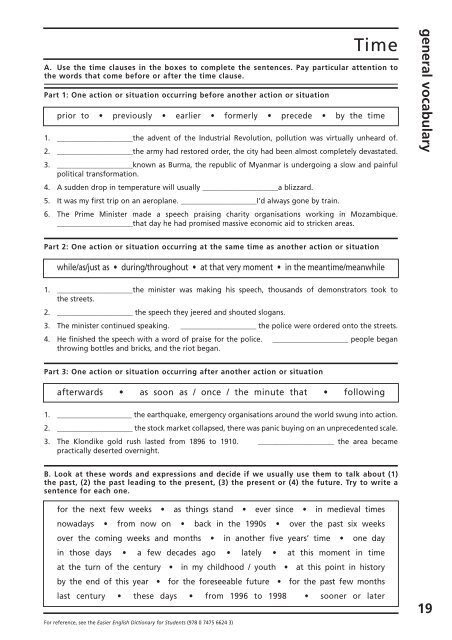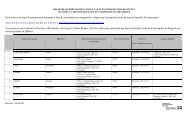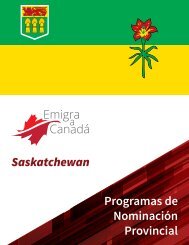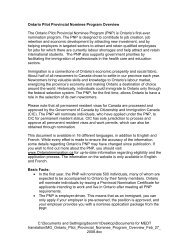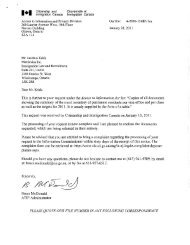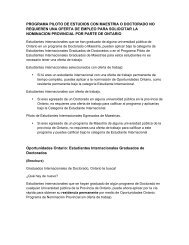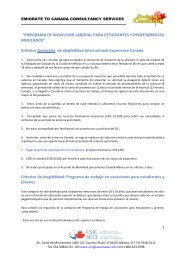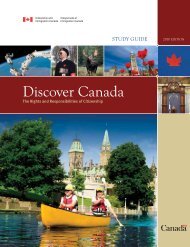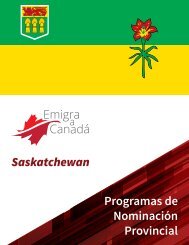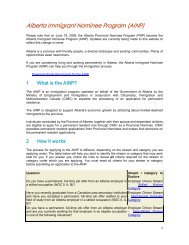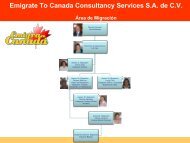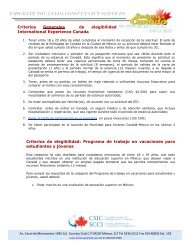CHECK YOUR ENGLISH VOCABULARY FOR IELTS - Emigra a
CHECK YOUR ENGLISH VOCABULARY FOR IELTS - Emigra a
CHECK YOUR ENGLISH VOCABULARY FOR IELTS - Emigra a
Create successful ePaper yourself
Turn your PDF publications into a flip-book with our unique Google optimized e-Paper software.
Time<br />
A. Use the time clauses in the boxes to complete the sentences. Pay particular attention to<br />
the words that come before or after the time clause.<br />
Part 1: One action or situation occurring before another action or situation<br />
prior to • previously • earlier • formerly • precede • by the time<br />
1. _____________________the advent of the Industrial Revolution, pollution was virtually unheard of.<br />
2. _____________________the army had restored order, the city had been almost completely devastated.<br />
3. _____________________known as Burma, the republic of Myanmar is undergoing a slow and painful<br />
political transformation.<br />
4. A sudden drop in temperature will usually _____________________a blizzard.<br />
5. It was my first trip on an aeroplane. _____________________I’d always gone by train.<br />
6. The Prime Minister made a speech praising charity organisations working in Mozambique.<br />
_____________________that day he had promised massive economic aid to stricken areas.<br />
general vocabulary<br />
Part 2: One action or situation occurring at the same time as another action or situation<br />
while/as/just as • during/throughout • at that very moment • in the meantime/meanwhile<br />
1. _____________________the minister was making his speech, thousands of demonstrators took to<br />
the streets.<br />
2. _____________________ the speech they jeered and shouted slogans.<br />
3. The minister continued speaking. _____________________ the police were ordered onto the streets.<br />
4. He finished the speech with a word of praise for the police. _____________________ people began<br />
throwing bottles and bricks, and the riot began.<br />
Part 3: One action or situation occurring after another action or situation<br />
afterwards • as soon as / once / the minute that • following<br />
1. _____________________ the earthquake, emergency organisations around the world swung into action.<br />
2. _____________________ the stock market collapsed, there was panic buying on an unprecedented scale.<br />
3. The Klondike gold rush lasted from 1896 to 1910. _____________________ the area became<br />
practically deserted overnight.<br />
B. Look at these words and expressions and decide if we usually use them to talk about (1)<br />
the past, (2) the past leading to the present, (3) the present or (4) the future. Try to write a<br />
sentence for each one.<br />
for the next few weeks • as things stand • ever since • in medieval times<br />
nowadays • from now on • back in the 1990s • over the past six weeks<br />
over the coming weeks and months • in another five years’ time • one day<br />
in those days • a few decades ago • lately • at this moment in time<br />
at the turn of the century • in my childhood / youth • at this point in history<br />
by the end of this year • for the foreseeable future • for the past few months<br />
last century • these days • from 1996 to 1998 • sooner or later<br />
For reference, see the Easier English Dictionary for Students (978 0 7475 6624 3)<br />
19


